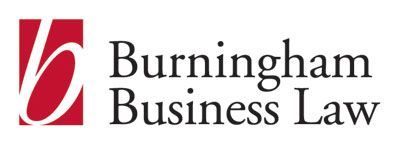Brent Burningham | Oct 01 2025 20:00
Do I Need an LLC or Corporation for My Business in Utah?
Starting a business in Utah involves making several critical decisions, including choosing the right legal structure. Two popular choices are the Limited Liability Company (LLC) and the Corporation. Understanding these options can help ensure your business is set up for success from the start. At Burningham Business Law, we specialize in guiding business owners through these complex decisions, ensuring compliance with state laws while maximizing business potential.
Understanding LLCs and Corporations
An LLC is a flexible business structure designed to offer the liability protection of a corporation with the tax efficiencies and operational flexibility of a partnership. Meanwhile, a Corporation is a more formal structure known for offering comprehensive liability protection to its shareholders. Corporations can be further categorized into C-Corporations and S-Corporations, each with distinct tax implications and operational requirements.
Why This Decision Matters
Choosing between an LLC and a Corporation affects taxation, liability exposure, and administrative responsibilities. The right choice can provide financial savings, protect personal assets, and streamline the operation of your business. Conversely, a poorly suited structure can lead to unwanted tax burdens and complications in business operations.
Step-by-Step Guidance on Choosing the Right Structure
The decision process involves several key steps:
- Assessing Liability Protection: LLCs shield personal assets from business liabilities while Corporations may offer broader protections.
- Understanding Tax Implications: LLCs offer pass-through taxation, avoiding double taxation while Corporations pay corporate taxes, with shareholders also taxed on dividends.
- Administrative Requirements: Corporations typically require more extensive record-keeping and reporting compared to LLCs.
- Flexibility Needs: LLCs provide operational flexibility, which can be an advantage for smaller businesses anticipating growth.
- Future Growth Predictions:
Consider long-term goals, such as the need to raise capital, which might favor a Corporation structure for issuing shares.
Common Scenarios and Examples
Many small business owners in Utah choose LLCs for their simplicity and tax advantages. For example, a local catering service might opt for an LLC to leverage its flexible management structure while protecting personal assets. Conversely, a tech startup aiming to attract investors may prefer a Corporation to facilitate stock offerings and raise capital.
Challenges When Deciding Between LLC and Corporation
Business owners often face issues such as understanding legal jargon, anticipating future business needs, and navigating regulatory requirements. Missteps can lead to tax liabilities or insufficient liability protection. Additionally, changes in business direction may require a reevaluation of the chosen structure.
How Burningham Business Law Can Help
Our firm provides personalized consultations to help you evaluate which structure best aligns with your business goals. We'll guide you through the legal requirements and documentation needed to establish your business entity, ensuring compliance with Utah’s regulatory landscape. Our expertise in business formation and ongoing support helps you make informed decisions and avoid costly errors.
Reach Out for Expert Guidance
Need Help Deciding on an LLC or Corporation?
The decision about your business structure is one of the most crucial steps in establishing a strong foundation. Contact us at Burningham Business Law to discuss your options with our experienced legal team. Visit our website at burninghamlaw.com
or call us at (801) 547-9555
to schedule a consultation.
At Burningham Business Law, we're committed to supporting Utah businesses, providing expert legal advice tailored to your unique needs. Let us help you navigate your business journey with confidence.
